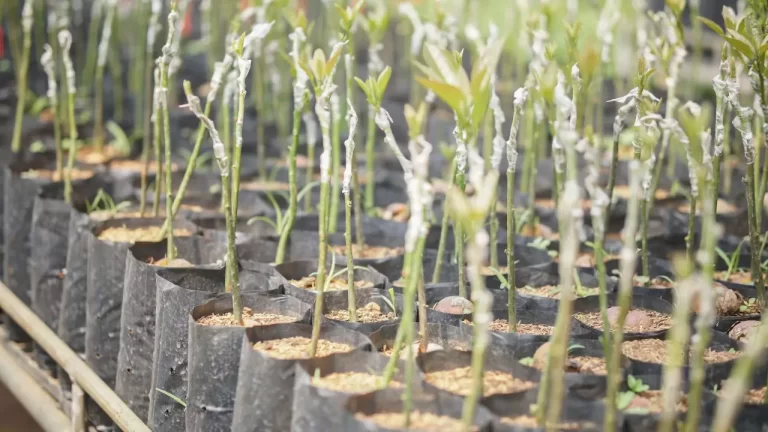Yes, avocado plants are toxic to cats. Avocado plants contain a substance called persin, which can cause various health problems in cats if ingested.
Persin is present in avocado leaves, fruit, seeds, and bark. The amount of persin varies depending on the type and variety of avocado, with the Guatemalan variety being the most toxic.
What Is Avocado?
Avocado, a member of the laurel family, shares lineage with cinnamon, bay leaves, and camphor. Originating from Central and South America, it now grows globally. This fruit boasts a creamy consistency and a subtle taste, offering an abundance of healthy fats, vitamins, minerals, and antioxidants. Commonly, it serves as a spread, enhances salads, enriches dips, or contributes to smoothies.
What Are The Symptoms Of Avocado Poisoning In Cats?
The symptoms of avocado poisoning in cats may vary depending on the dose and duration of exposure. Some of the common signs include:
- Vomiting
- Diarrhea
- Drooling
- Abdominal pain
- Loss of appetite
- Lethargy
- Weakness
- Difficulty breathing
- Fluid accumulation around the heart and lungs
- Heart failure
- Mastitis (inflammation of the mammary glands)
- Pancreatitis (inflammation of the pancreas)
Some of these symptoms may be life-threatening and require immediate veterinary attention.
How To Prevent Avocado Poisoning In Cats?
The best way to prevent avocado poisoning in cats is to keep them away from avocado plants and fruits. Do not grow avocado plants in your garden or indoors if you have cats. Do not feed your cat any part of an avocado or any food that contains avocado. Do not leave avocado pits or peels lying around where your cat can access them. Call your vet if you think your cat ate avocado.
Can Ingesting Any Part Of An Avocado Plant Make A Cat Sick?
Yes, ingesting any part of an avocado plant can make a cat sick. The leaves are the most toxic part, followed by the seeds, fruit pulp, and skin. Even a small amount of avocado might upset cats’ stomachs, but higher quantities can induce heart failure or mastitis.
Do Avocado Plants Only Release Toxins When Ingested By Cats?
No, avocado plants do not only release toxins when ingested by cats. Persin is present in all parts of the avocado plant at all times. However, some animals are more sensitive to persin than others. Birds, horses, rodents, and large farm animals are highly susceptible to avocado toxicity and can die from eating even a small amount of avocado. Dogs are less sensitive than cats but can still develop gastrointestinal or pancreatic problems from eating avocado. Humans are generally not affected by persin unless they have an allergy to avocado.
Do Avocado Plant Toxins Affect Cats Differently Than Dogs Or Other Pets?
Yes, avocado plant toxins affect cats differently than dogs or other pets. Cats are more sensitive to persin than dogs and can develop more severe symptoms such as heart failure or mastitis from eating avocado. Dogs are more likely to suffer from gastrointestinal or pancreatic problems from eating avocado. Birds are the most sensitive animals to persin and can die from eating even a small amount of avocado. Horses, rodents, and large farm animals can also develop fatal heart or lung problems from eating avocado.
What Are The Treatment Options For Avocado Poisoning In Cats?
The treatment options for avocado poisoning in cats depend on the severity of the condition and the time elapsed since ingestion. Some of the possible treatments include:
- Inducing vomiting to remove any remaining avocado from the stomach.
- Administering activated charcoal to bind any persin in the intestines.
- Providing intravenous fluids and electrolytes to prevent dehydration and shock.
- Controlling vomiting with anti-nausea drugs.
- Reduce pancreatic or mammary gland inflammation using anti-inflammatory medicines.
- Giving diuretics to reduce fluid accumulation around the heart and lungs.
- Giving anti-arrhythmic medication to regulate the heart rate and rhythm.
- Providing oxygen therapy to improve breathing.
- Providing supportive care and monitoring until the cat recovers.
Avocado poisoning in cats relies on the quantity and kind of avocado swallowed, the cat’s size, age, and health, and the treatment’s speed and efficacy. Some cats recover completely, while others suffer organ damage or die.







